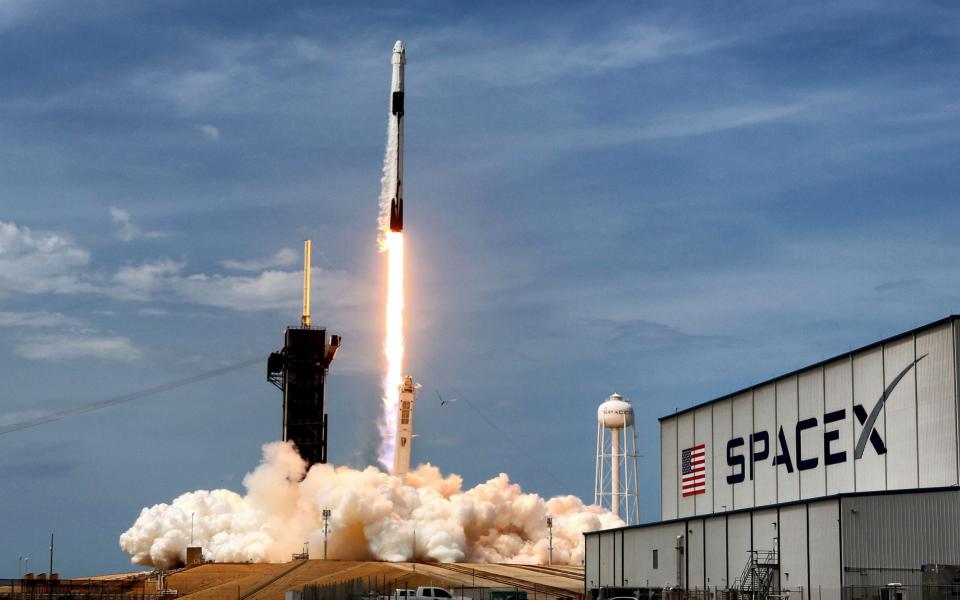SpaceX accuses OneWeb of spreading fake news over satellite collisions

Elon Musk’s SpaceX has accused British rival OneWeb of “misleading” the public by claiming that their satellites nearly collided in orbit.
It comes after a SpaceX satellite came within 190ft of a OneWeb craft earlier this month, prompting OneWeb to make evasive manoeuvres.
Following the incident, Chris McLaughlin, the regulatory head at OneWeb, told The Wall Street Journal that Mr Musk’s business “has a gung-ho approach to space.”
SpaceX forcefully denied this claim in a letter to the Federal Communications Commission (FCC).
“This was not a close call or a near miss,” the company wrote in the letter which also accused OneWeb of showing “more of a concern with limiting competitors than with a genuine concern for space safety.”
It added that OneWeb, which is controlled by the UK government and Indian conglomerate Bharti Global, has been spreading misinformation as part of what it called a “disturbing trend” among international competitors attempting to influence US regulators.
To prevent crashes, Starlink satellites have an automated collision-avoidance system. However, Mr McLaughlin, claimed that SpaceX had to turn off the system at the time to avoid inteference.
“Despite OneWeb’s previous public claims, SpaceX’s autonomous collision-avoidance system was and remains fully functional at all times,” David Goldman, SpaceX director of satellite policy said in the FCC filing. “SpaceX only turned off the capability at OneWeb’s explicit request after OneWeb decided to conduct a maneuver.”
SpaceX claimed that OneWeb had agreed that there was no near-miss and planned to retract its comments.
However, in its own letter to the FCC, OneWeb said it "stands by its story," adding that the business "made no such offer to retract any previous statements made to the press."
Both businesses are hoping to take the lead in the continued effort to use satellites to provide internet connections to remote regions that do not yet have reliable broadband speeds.
OneWeb, which was founded in 2012, was bought out of bankruptcy in late 2020 for $1bn (£722m) in a joint investment by the UK government and Bharti Global, an Indian telecoms company.
SpaceX, which was founded in 2002 by Musk, the world's second-richest man and chief executive of Tesla Motors, has already started providing broadband for customers in Britain using its Starlink network of satellites for £89 per month.
Starlink has a network of 1,378 satellites operating in low-Earth orbit at an altitude of 550km.
By comparison, OneWeb's 148 satellites in orbit operate at a higher altitude of around 1,200km, and as a result have to pass through Starlink's constellation on their way up.
However, Neil Masterson, the new chief executive of OneWeb, has dismissed claims of a rivalry between the two companies. “We are not fighting the industry, but working with them,” he said.
